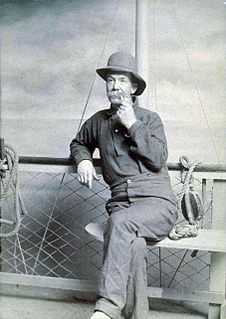A Quote by Sara Blakely
I failed the LSAT. Basically, if I had not failed, I'd have been a lawyer and there would be no Spanx. I think failure is nothing more than life's way of nudging you that you are off course. My attitude to failure is not attached to outcome, but in not trying. It is liberating.
Related Quotes
I think failure is nothing more than life's way of nudging you that you are off course. My attitude to failure is not attached to outcome, but in not trying. It is liberating. Most people attach failure to something not working out or how people perceive you. This way, it is about answering to yourself.
Some failure in life is inevitable. It is impossible to live without failing at something, unless you live so cautiously, that you might as well not have lived at all. In which case you have failed by default. Failure gave me an inner security that I had never obtained by passing examinations. Failure taught me things that I could not have learned any other way. I discovered I had a strong will and more discipline than I had suspected.
If you can look at your failure and answer yes to the questions, "Did I give it my absolute best effort?" and "Have I learned something valuable?" then you have failed in the right way. By these standards, I've failed many times in my career. But every failure has made me stronger and wiser. Inevitably, success has always followed.
Success is always an easier motivator, because you want more of it. But I've also been motivated by failure. Had I medaled in London, I don't think I would be one of the few that have gone to a Summer and Winter. I would have been content with that medal. Instead, I used that failure to go to the Winter Olympics. I always tell people that failure can be one of your biggest motivators if you just have an attitude adjustment about it.
Failure's relative. I've always felt, even early on, if I lose the freedom to fail, something's not right about that. It's how you treat failure, too. There's something to learn from it. I've had movies that have failed colossally, so you kind of analyze your failures: What kind of failure was it? A failure because it's misunderstood by others? A failure because you misunderstood it yourself?
Having written both comedy and drama, comedy's harder because the fear of failure's so much stronger. When you write a scene and you see it cut together, and it doesn't make you laugh, it hurts in a way that failed drama doesn't. Failed drama, it's all, 'That's not that compelling,' but failed comedy just lays there.
The TV scientist who mutters sadly, "The experiment is a failure; we have failed to achieve what we had hoped for," is suffering mainly from a bad script writer. An experiment is never a failure solely because it fails to achieve predicted results. An experiment is a failure only when it also fails adequately to test the hypothesis in question, when the data it produces don't prove anything one way or another.






























